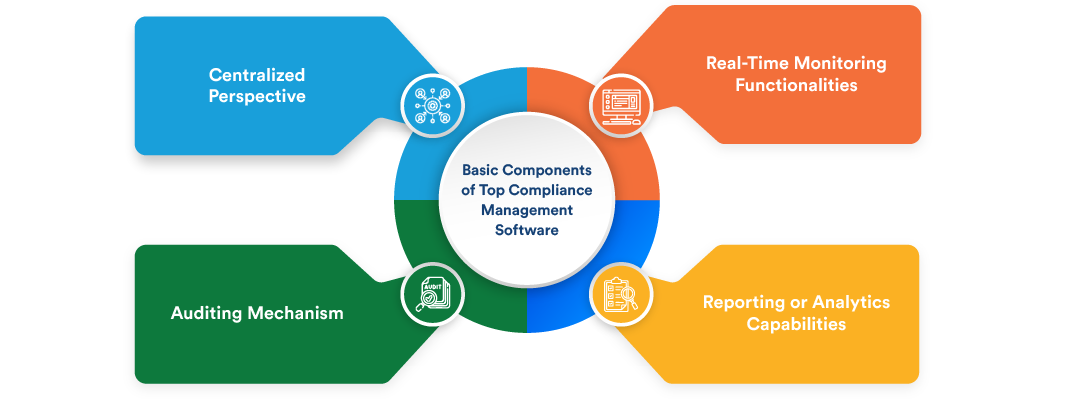In today's increasingly regulated business environment, ensuring adherence to regulatory requirements is critical for companies across various industries. The complexity of these regulations, such as the need for 21 CFR Part 11 compliance in the life sciences sector, makes it essential for organizations to have robust systems in place. Compliance Management helps organizations navigate the intricate web of regulations, ensuring that all necessary reports are accurate, timely, and comprehensive.
1. Grasping the Importance of Compliance Management in Regulatory Reporting
- The Need for Compliance Management in Regulatory Reporting
Regulatory reporting is a mandatory requirement for organizations operating in regulated industries. The accuracy and timeliness of these reports are crucial for maintaining the trust of regulatory bodies and avoiding penalties. Compliance Management software plays a pivotal role in ensuring that all regulatory requirements are met, providing a structured approach to managing compliance-related tasks.
- How Compliance Management Streamlines Reporting Processes
Compliance Management software automates many of the manual processes involved in regulatory reporting. It provides a centralized platform where all compliance-related information is stored, making it easier for quality assurance managers and regulatory affairs teams to access and manage data.
2. Automating Compliance with 21 CFR Part 11
- What is 21 CFR Part 11 Compliance?
21 CFR Part 11 is a set of regulations established by the FDA that outlines the criteria under which electronic records and electronic signatures are considered trustworthy and equivalent to paper records. Compliance with these regulations is mandatory for companies in the life sciences sector. Compliance Management software helps organizations ensure that their electronic systems meet these requirements, facilitating smoother regulatory reporting.
- The Role of Compliance Management Software in Achieving 21 CFR Part 11 Compliance
Compliance Management software offers features specifically designed to help organizations achieve 21 CFR Part 11 compliance. These features include audit trails, secure user authentication, and data integrity checks, all of which are crucial for maintaining the credibility of electronic records. By automating these processes, the software ensures that organizations remain compliant with FDA regulations, reducing the risk of non-compliance and the associated penalties.
3. Enhancing Supplier Management Through Compliance Reporting
- The Importance of Supplier Management in Compliance
Supplier Management is a critical component of regulatory compliance, especially in industries such as pharmaceuticals and food production, where the quality of raw materials can directly impact product safety. Compliance Management software helps organizations maintain oversight of their suppliers, ensuring that they meet all regulatory requirements.
- How Compliance Management Software Facilitates Supplier Management
Compliance Management software provides tools for tracking supplier performance, monitoring compliance with regulatory standards, and generating reports that demonstrate supplier compliance. This functionality is essential for companies that rely on a network of suppliers, as it ensures that all parties involved in the production process adhere to the necessary regulations.
4. Integrating Regulatory Compliance Management into Business Operations
- Why Regulatory Compliance Management is Essential for Business Success
Regulatory Compliance Management is not just about avoiding penalties; it is about ensuring that business operations are aligned with legal and ethical standards. Compliance Management software integrates regulatory compliance into every aspect of business operations, from product development to supply chain management, ensuring that all activities are conducted within the framework of relevant regulations.
- The Role of Compliance Management Software in Streamlining Compliance Activities
Compliance Management software simplifies the complex task of Regulatory Compliance Management by providing a centralized platform for managing all compliance-related activities. This includes tracking regulatory changes, monitoring compliance status, and generating reports that provide a clear overview of an organization's compliance performance.
5. Ensuring Data Integrity in Regulatory Reporting
- The Importance of Data Integrity in Compliance Management
Data integrity is a critical aspect of regulatory reporting, as inaccuracies or inconsistencies in data can lead to severe penalties. Compliance Management software ensures that all data used in regulatory reporting is accurate, complete, and secure, providing a reliable foundation for compliance activities.
- How Compliance Management Software Supports Data Integrity
Compliance Management software includes features such as automated data validation, audit trails, and secure data storage, all of which contribute to maintaining data integrity. These features ensure that the data used in regulatory reports is trustworthy, reducing the risk of errors and ensuring that reports meet regulatory standards.
6. Facilitating Audit Management with Compliance Software
- The Role of Audits in Regulatory Compliance Management
Audits are a critical component of Regulatory Compliance Management, as they provide an opportunity to review compliance practices and identify areas for improvement. Compliance Management software facilitates the audit process by providing tools for scheduling audits, tracking audit findings, and generating audit reports.
- How Compliance Management Software Streamlines the Audit Process
Compliance Management software automates many of the tasks associated with audit management, such as tracking corrective actions and monitoring audit outcomes. This automation reduces the administrative burden on compliance teams, allowing them to focus on addressing audit findings and improving compliance practices.
7. Supporting Global Compliance Requirements
- Navigating the Complexity of Global Regulatory Requirements
Organizations that operate in multiple countries must comply with a diverse set of regulatory requirements. Compliance Management software helps organizations navigate these complexities by providing tools for managing compliance with regulations in different jurisdictions.
- How Compliance Management Software Ensures Global Compliance
Compliance Management software includes features for tracking regulatory changes in different countries, generating reports that demonstrate compliance with local regulations, and managing compliance activities across multiple locations. This global functionality ensures that organizations can maintain compliance regardless of where they operate.
Conclusion
In conclusion, Compliance Management software is an essential tool for organizations operating in regulated industries. By automating the regulatory reporting process and ensuring compliance with complex regulations such as 21 CFR Part 11, this software helps organizations avoid costly penalties and maintain their reputation with regulatory bodies. ComplianceQuest Management Software, in particular, offers a robust solution for managing compliance in a rapidly changing regulatory environment, making it an indispensable asset for businesses in 2024.





Comments